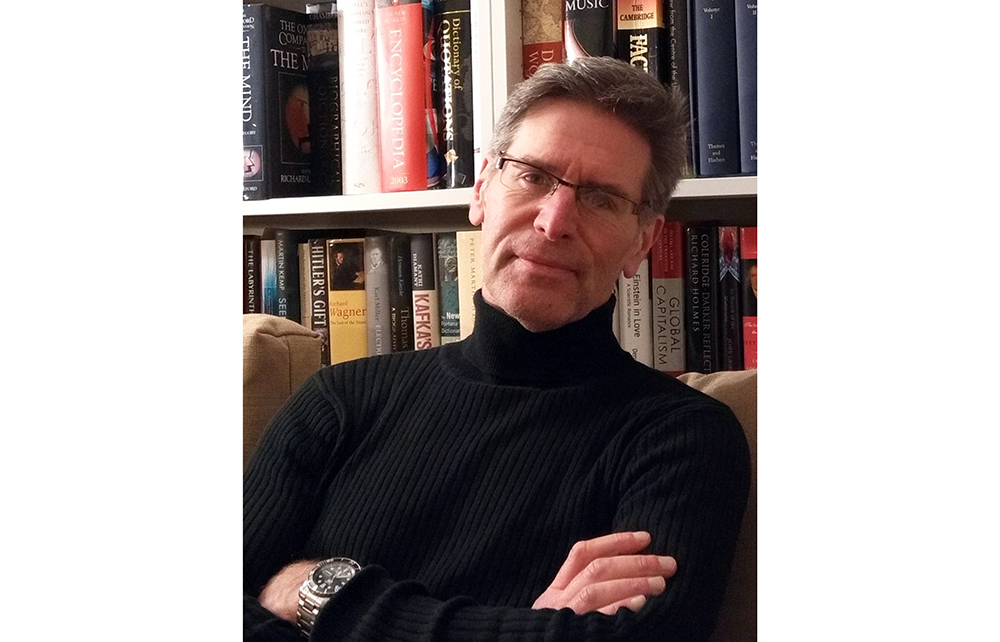In an uncanny way, Andrew Crumey’s Beethoven’s Assassins reminded me of Vanity Fair. It has no epigraphs, but both these quotes nudged into my mind: ‘Come, children, let us shut up the box and the puppets, for our play is played out’; and ‘The world is a looking-glass, and gives back to every man the reflection of his own face’.
I have admired Crumey’s work for decades. When I first returned to Scotland, I found it astonishing that there was a writer being talked about as ‘our’ Calvino or Borges when the enthusiasm generally was for Trainspotting. His latest novel is more like Umberto Eco in some regards, but is still quintessentially Crumey. I hope its valedictory tone is a fiction within a fiction.
Structured around interlocking stories across time, it opens with Therese, Beet-hoven’s sister-in-law, who has little good to say about her dishevelled, dying relative but may know about a lost opera, The Assassins, or Everything Is Allowed. It then switches to a contemporary discussion about Beethoven, supposedly written by Robert Coyle, the dimension-shifting protagonist of Crumey’s Sputnik Caledonia, who in this iteration is dealing with grief.
The next voice is Adam Crouch, a washed-up screenwriter with no commissions, who somehow manages to bag a place on an interdisciplinary retreat. The connections begin to build. He is only at this once aristocratic pile because Coyle died there during his residency. Crouch is unlucky Jim, and these sections are acerbically funny. But there is also the forgotten J.W.N. Sullivan, a popular science writer and acquaintance of Katherine Mansfield, who stayed at the same estate, where séances involving armonicas seem to bring back the ‘imprint’ of Therese van Beethoven.
The book is seeded with recurring images which serve its theme. Is the perfect conspiracy so well-constructed it isn’t even recognised? Are tales of the Assassins, Freemasons, Illuminati, Rosicrucians, Knights Templar, Aleister Crowley, spiritualists and so forth merely sleights of hand and distractions from the true secret clockwork of the world?
It’s great cerebral fun, with its quantum physics, telepathy, time travel and fraying of fact and fiction. But all this is its own misdirection. Coyle’s mother has died suddenly, and his father has dementia. The writing here about the soul-grinding nature of the bureaucracy surrounding illness and death is chillingly good. The questions the novel poses about science and aesthetics (is Einstein as good as Beethoven?) pale in comparison to the rawness of the loss it depicts with the same scrutiny as an equation or a late quartet.
In 2003, Crumey was selected as one of Granta’s Best of Young British Novelists, but honourably pointed out he was actually 41. It is a pity that his work is not more widely recognised as the achievement it is.






Comments